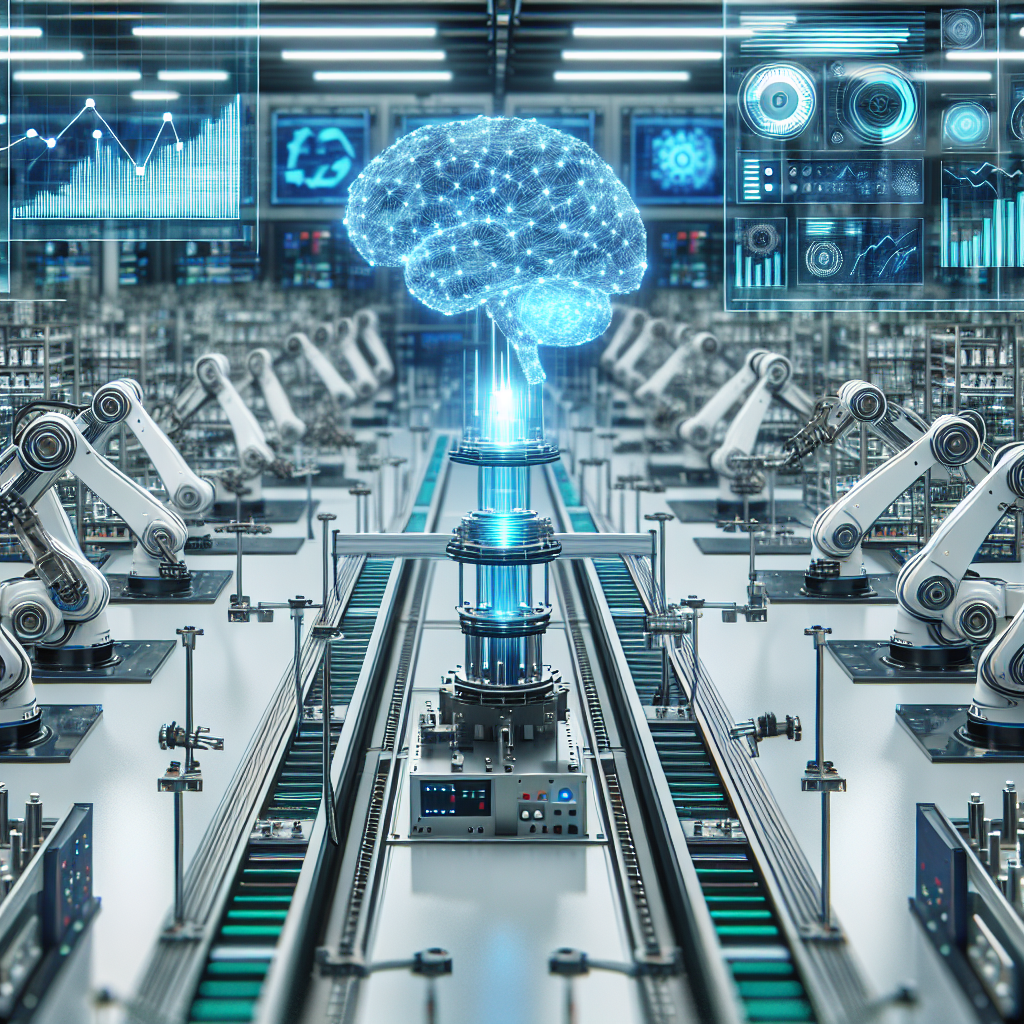In recent years, artificial intelligence (AI) has been revolutionizing various industries, including manufacturing. One area where AI is making a significant impact is in production planning. Traditionally, production planning in manufacturing has been a complex and time-consuming process that involves forecasting demand, scheduling production, and managing inventory. However, with the advent of AI technologies, production planning has become more efficient, accurate, and responsive to changes in demand and supply.
AI-powered production planning systems use machine learning algorithms to analyze historical data, predict future demand, optimize production schedules, and recommend inventory levels. These systems can process large amounts of data in real-time, enabling manufacturers to make informed decisions quickly and effectively. By leveraging AI in production planning, manufacturers can improve operational efficiency, reduce costs, and increase customer satisfaction.
One of the key benefits of using AI in production planning is the ability to predict demand more accurately. Traditional forecasting methods rely on historical data and assumptions, which may not always reflect current market conditions. AI algorithms can analyze a wide range of variables, such as sales data, market trends, weather patterns, and social media sentiment, to generate more accurate demand forecasts. This enables manufacturers to adjust production schedules and inventory levels in real-time, reducing the risk of stockouts or excess inventory.
AI-powered production planning systems can also optimize production schedules to maximize efficiency and minimize costs. These systems can analyze production constraints, such as machine capacity, labor availability, and material availability, to create optimal production plans. By considering all relevant factors, AI algorithms can generate schedules that minimize production lead times, reduce idle time, and maximize resource utilization. This results in lower production costs, faster order fulfillment, and improved on-time delivery performance.
Furthermore, AI technologies can help manufacturers manage inventory more effectively. By analyzing demand forecasts, production schedules, and supplier lead times, AI-powered systems can recommend optimal inventory levels for raw materials, work-in-progress, and finished goods. This enables manufacturers to reduce carrying costs, minimize stockouts, and improve cash flow. Additionally, AI algorithms can identify slow-moving or obsolete inventory, enabling manufacturers to take corrective action before these items become a financial burden.
Overall, AI is redefining production planning in manufacturing by enabling manufacturers to make more informed decisions, optimize production processes, and respond quickly to changes in demand and supply. By leveraging AI technologies, manufacturers can improve operational efficiency, reduce costs, and enhance customer satisfaction. As AI continues to evolve and become more sophisticated, its impact on production planning in manufacturing is expected to grow even further in the coming years.
FAQs:
1. How does AI improve demand forecasting in production planning?
AI-powered production planning systems use machine learning algorithms to analyze a wide range of variables, such as sales data, market trends, weather patterns, and social media sentiment, to generate more accurate demand forecasts. This enables manufacturers to adjust production schedules and inventory levels in real-time, reducing the risk of stockouts or excess inventory.
2. How can AI optimize production schedules in manufacturing?
AI-powered production planning systems can analyze production constraints, such as machine capacity, labor availability, and material availability, to create optimal production plans. By considering all relevant factors, AI algorithms can generate schedules that minimize production lead times, reduce idle time, and maximize resource utilization. This results in lower production costs, faster order fulfillment, and improved on-time delivery performance.
3. How does AI help manage inventory in manufacturing?
AI technologies can analyze demand forecasts, production schedules, and supplier lead times to recommend optimal inventory levels for raw materials, work-in-progress, and finished goods. This enables manufacturers to reduce carrying costs, minimize stockouts, and improve cash flow. Additionally, AI algorithms can identify slow-moving or obsolete inventory, enabling manufacturers to take corrective action before these items become a financial burden.
4. What are the benefits of using AI in production planning?
Some of the key benefits of using AI in production planning include improved demand forecasting accuracy, optimized production schedules, efficient inventory management, reduced production costs, faster order fulfillment, and enhanced customer satisfaction. By leveraging AI technologies, manufacturers can make more informed decisions, respond quickly to changes in demand and supply, and improve operational efficiency.

